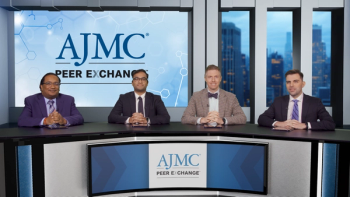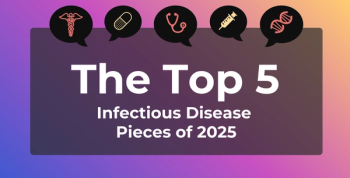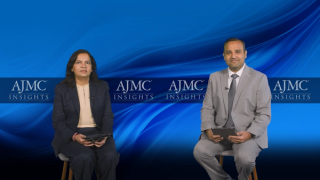
Clinical
Latest News

Latest Videos

CME Content
More News

Updated iMMagine-1 data presented at ASH 2025 show that anito-cel delivers deep, durable responses in heavily pretreated multiple myeloma.

This study found that certain characteristics in linked electronic health record data across episodes of care can help identify patients with Alzheimer disease and related dementias at high risk of 30-day readmissions.

Andrew Yee, MD, introduces the discussion by reviewing treatment challenges, patient education, and decision-making in relapsed/refractory multiple myeloma.

Experts discuss the evolving role of bispecific antibodies in multiple myeloma, highlighting treatment advancements and strategies for optimal patient care.

Fuzuloparib extended progression-free survival, regardless of the addition of apatinib in patients with newly diagnosed advanced ovarian cancer.

This year's top inflammation article highlighted the first FDA-approved treatment for patients with bronchiectasis.

This year's top ovarian cancer article highlighted gaps in physician knowledge of genetic testing that may affect patient care.

Influenza and COVID-19 are seeing an uptick in incidence as the winter months approach, making protecting vulnerable populations a high priority.

A phase 2b trial found vixarelimab rapidly reduced itch and lesion burden in prurigo nodularis, with sustained benefit and a favorable safety profile.

Top pieces from 2025 spanned outbreaks, an FDA drug approval, and the impact of NIH grant terminations.

The shift toward dual-targeting bispecifics and the imminent arrival of highly efficacious triple combinations could shift the follicular lymphoma treatment space.

Panelists discuss how the economic toll of poor LDL-C control demands workplace and systemwide prevention strategies.

Optimally positioning CD19-directed therapies in the follicular lymphoma treatment sequence requires consideration of both efficacy and the risk of sacrificing future options.

Experts at SABCS highlighted the aggressive nature of breast cancer in young women, emphasizing tailored management and support strategies.

The FDA approved subcutaneous amivantamab with recombinant human hyaluronidase for EGFR-mutated NSCLC based on the phase 3 PALOMA-3 trial.

Leaders of OneOncology share how the managed services organization empowers independent oncology practices through advanced technology, clinical trials, and value-based care, enhancing patient-focused cancer treatment.

A study using Mendelian randomization found higher BMI and IBD have causal links to hidradenitis suppurativa risk.

A novel phase 1 trial explores the safety and efficacy of targeted radiotherapy for leptomeningeal metastases in breast cancer patients.

Marco del Riccio, MD, explains that the Flunomics report helped to identify gaps in US vaccine coverage and influenza surveillance during the 2024-2025 season.

Sustained long-term safety data for tildrakizumab strengthens the positioning of IL-23 inhibitors as a preferred choice, especially for patients with comorbidities or a history of infection, and suggests their potential use in combination therapies for psoriatic arthritis.

Zachary Contreras of Sharp Health Plan highlighted strategies discussed at AMCP Nexus for improving timely access to Monoclonal Migraine Receptor (MMR) therapy through updated coverage pathways, specialist input, and real-time benefit checks.

Experts discuss dose reduction strategies and emerging therapies for desmoid tumors, emphasizing patient monitoring and quality of life improvements.

Zachary Contreras highlighted strategies discussed at AMCP Nexus for improving timely access to monoclonal migraine receptor (MMR) therapy through updated coverage pathways, specialist input, and real-time benefit checks.

Experts discuss dose reduction strategies and emerging therapies for desmoid tumors, emphasizing patient monitoring and quality of life improvements.

Today, the FDA issued new guidance allowing de-identified real-world evidence in certain medical device applications, removing a barrier to using large data sources.













